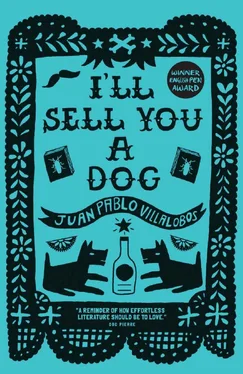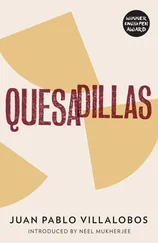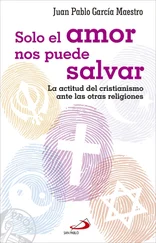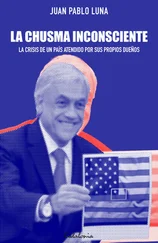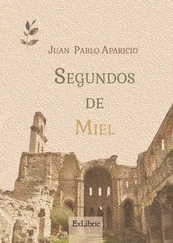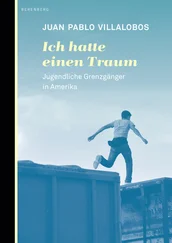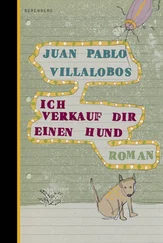Eighty-Three had become an anachronism a year later, in ’84, and by the time he was scratching at the door to my room, well into ’85, he was a dead weight that tested my patience and made me doubt seriously whether the dog would live to see ’86.
Around that time I used to sleep, or try to sleep, until midday, because I went to bed at 3 a.m. at the earliest, after closing the stall at midnight or at one on weekends, after cleaning and getting rid of the rubbish, pushing the cart over to a carport where I paid a guy to keep it safe for me, and having one or two drinks, which sometimes ended up being three or four, or five, in one of the nearby bars. My sister left for work early, and Mum came and went, running errands to fill the day like anyone with time on their hands does. Dogs had come and gone, and life had gone by: I was fifty years old and my sister fifty-one. After my father left, no one had been brave enough to leave home.
I got out of bed when my hangover let me remember that that morning, my mother was going to go to one of the few places she couldn’t take the dog: the doctor’s. The mutt wasn’t going to leave me in peace until I took him out to have a wee. I went to the kitchen to get a glass of water and on the table I found the results of the tests my mother had been given the day before, a diagnosis that said, contrary to her belief, Mum was not suffering from any kind of heart condition. She’d left the results in the house on purpose, so the second opinion she was going to ask for today wouldn’t be influenced by them. That is, so they wouldn’t tell her she was a hypochondriac and send her home without doing more tests.
It was almost eleven o’clock, so I put on yesterday’s clothes and, with Eighty-Three at my heels, went out into the communal passageway, where I discovered all my neighbours, every single one of them, gathered in groups that formed and then dispersed again, their radios playing at full blast, the doors to their houses open, the TVs on. My bewilderment lasted a second and then turned to astonishment when I saw Marilín walking towards me. As grudges had come and gone, we hadn’t said a word to each other for twenty-five years.
Considering her legendary talent for flirting, something very serious must have happened: her face was bare and she wore a blouse and trouser get-up that could easily have been pyjamas. Without make-up, the wrinkles on her face were the proof of everything I hadn’t wanted to see until then and which, as a matter of fact, I still didn’t want to see.
‘Where’s your mother?’ she asked me.
‘At the doctor’s,’ I replied. ‘What’s happened?’
‘Didn’t you hear? There was an earthquake!’
‘I was asleep.’
‘I’ve been knocking at your door all morning.’
‘I didn’t hear. I’m a heavy sleeper.’
‘Perhaps if you didn’t drink so much…’
‘If I didn’t drink so much there wouldn’t have been an earthquake? Really?’
‘Where did your mum go?’
‘To the doctor’s.’
‘Where?’
‘I don’t know, cardiology, I think.’
‘Are you sure?’
‘I don’t know, I don’t know, I think so.’
‘They’re saying the hospital collapsed.’
‘Who is?’
‘I don’t know, on the radio, or the TV.’
‘I’m going to talk to my sister.’
‘Where is she?’
‘At work.’
‘The phones aren’t working.’
I left Marilín and went back into the house without worrying about Eighty-Three, who came after me anyway, panicking now and with good reason, infected by the collective hysteria. I switched on the TV and then I saw the piece of paper on top with a message.
Don’t forget I’m going to cardiology today. I don’t know how long I’ll be, so take Eighty-Three out to do his business. If I’ve got something serious and they have to keep me in, don’t forget to feed him this evening. Your sister’s coming with me.
I showed up at the police station, accompanied by Dorotea and Willem, and we made a statement that the Lost Times had been lost the day the crime was committed and that the literary salon had only just recovered them when they were arrested. I brought along the money to cover the bail, an amount equivalent to two years of life. It didn’t pain me to do so, not at that moment: five or six years more, instead of seven or eight, or three or four, seemed the same. And in any case, there was always the possibility of getting the bail money back if the salon members were acquitted. Less likely was that they’d be given back the Lost Times , which had become evidence in a criminal case.
We waited for the salonists to be released and when they came out there were no embraces or scenes of relief, only an exchange of glances halfway between hatred and gratitude, if a sentiment exists that can link the two. We’d come in a taxi and, since there was quite a gaggle of us now, I suggested we take the metro back. One of the salon members, one who throughout this whole story hadn’t said or done anything to distinguish himself, said that he used to work around here and would be able to show us the way to the metro station. We set off in silence, Dorotea and Willem holding hands, me calculating how soon I could bust out a joke so it wouldn’t feel so much like a funeral procession. I waited for two blocks, then I said: ‘We really missed you guys.’
‘Why did you do it?’ Francesca asked.
Why did I do what, I thought? Loan out the Lost Times to commit a crime and then return them covered in evidence that would incriminate them, or pretend I knew nothing and say it had all been a mix-up?
‘Why did I do what?’ I asked out loud.
‘Pay our bail,’ she replied. ‘You didn’t have to, we were getting a collection together already. I’ll pay you what I owe…’
‘Don’t get the wrong idea, Francesca , I didn’t do it for the reason you think I did.’
‘And what reason is that?’
‘That I’ve gone soft, that I feel guilty, that I think I owe you all something.’
‘And you don’t?’
‘Of course not.’
‘Well then?’
‘It’s a negotiation. The real negotiation. You make that medical certificate disappear and I won’t inform the management committee that their president is being investigated for a crime.’
‘A crime of which I’m innocent.’
‘That’s why I paid the bail.’
‘Because you feel guilty.’
‘Because if the Lost Times hadn’t disappeared none of this would have happened.’
‘I didn’t know you had a sense of justice.’
‘Come and have a glass of whisky with me tonight and I’ll explain everything I know about justice and executions, starting with the catacombs of the Roman Empire.’
‘You pervert.’
‘That’s how I like it.’
We carried on walking in silence. It was that time in the afternoon when all that remained of the sun was the heat rising from the tarmac. I looked towards the horizon, through the buildings, and then I saw the self-portrait printed on a plastic sheet hanging from the wall of an old colonial building.
‘STOP!’ I yelled.
Everyone stopped dead, envisaging some imminent danger: a runaway car, a rabid dog.
‘What is it?’ Willem asked.
‘What is it?’ Francesca asked.
‘What is it?’ Dorotea asked.
‘What is it?’ the chorus of salon members asked.
I read out the advert for the exhibition: Wounded Life: Manuel González Serrano (1917–1960).
‘It’s him,’ I replied.
‘Who?’ Willem asked.
‘The Sorcerer.’
I dragged the anonymous salonist who’d showed us the way over by the arm and, pinching him to prove I wasn’t dreaming, I asked:
Читать дальше
